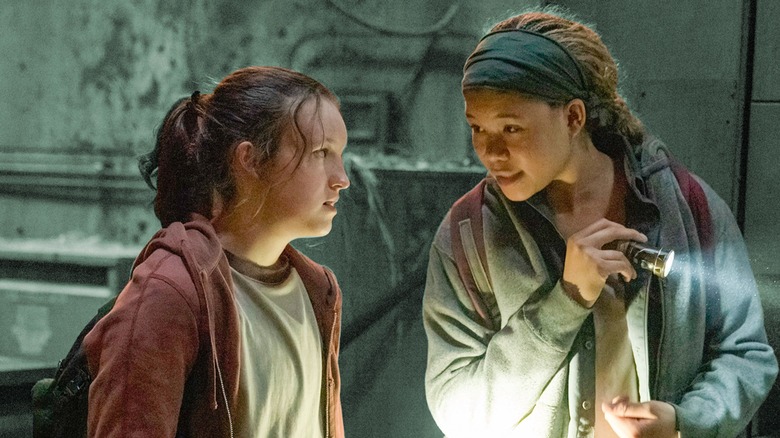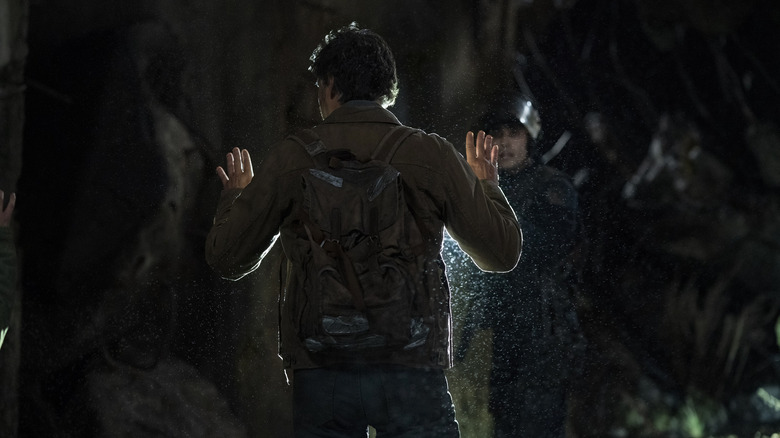The Last Of Us Episode 7 Shows Why FEDRA Was A Necessary Evil In The Apocalypse
Adapting the original video game's DLC of the same name, "The Last of Us" Season 1, Episode 7, "Left Behind" gave viewers a rare glimpse into the earlier days of the cordyceps outbreak. Though it doesn't go as far back as Episode 1, "When You're Lost in the Darkness," or Episode 3, "Long Long Time," this installment grants crucial context to Ellie's (Bella Ramsey) journey so far.
Raised in the FEDRA (Federal Disaster Response Agency) military school where Marlene (Merle Dandridge) first left her, Ellie struggles to fit in with her peers and to fully adopt the lifestyle her teachers impose upon her. Her close friend and tragic love interest Riley (Storm Reid) believes FEDRA to be nothing more than a fascist police force, but Ellie isn't so sure. Though previous episodes have seared a clear image of FEDRA's violent and morrally bankrupt actions into viewers' heads, Episode 7 gives us some understanding of why people like Ellie see them as a beacon of comfort and order.
FEDRA was a brutal deterrent against mankind's worst impulses
After getting into a fight with one of her fellow juvenile FEDRA trainees, Ellie is disciplined by FEDRA Captain Kwong (played by "Kung Fu's" Terry Chen). While giving her a stern talking-to about cups and keys (a questionable visual metaphor for Ellie's career potential), Kwong asserts that FEDRA has kept society from completely falling apart. Despite the fact that the organization has devolved into a mostly corrupt, fascist police force that primarily seeks to maintain its own power rather than to help rebuild society, Episode 7 does show why the government believed martial law was their best option.
Presumably not grasping the full scope of the impending apocalypse, those in power merely sought to preserve "order." As we see when Ellie and Riley visit this mall, one way in which this short-sighted goal manifested itself was in the forceful prevention of looting. While the fate of material objects and property would be irrelevant (even if the world didn't ultimately descend into complete decay), it does remind viewers that people in the world of "The Last of Us" can be dangerously selfish.
From mere isolationists like Bill (Nick Offerman) hoarding resources to the vicious bandits who murder for supplies, "The Last of Us" would have viewers understand that people can give in to their worst impulses at the end of the world. Though the ends don't justify the means and the negatives of FEDRA's existence arguably outweigh the positives, Episode 7 provides some perspective on how it rose to power in the first place and why it could be seen as necessary.

